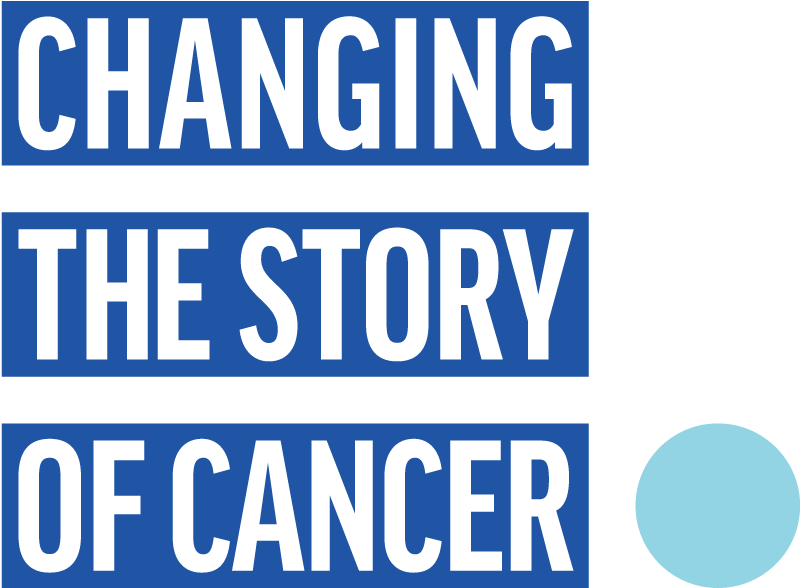CAMBRIDGE CANCER RESEARCH HOSPITAL NEWSLETTER
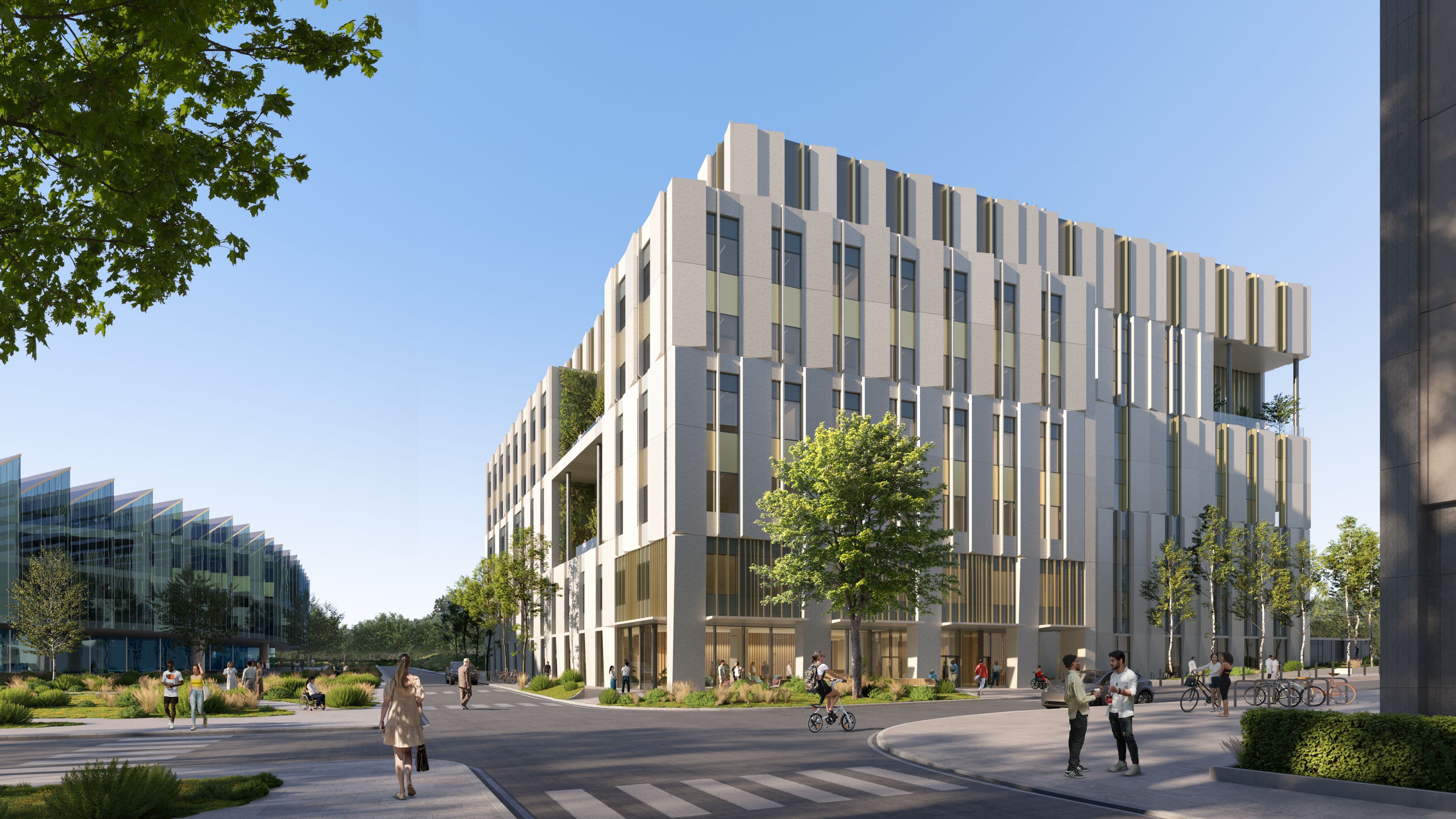
Welcome to our Cambridge Cancer Research Hospital newsletter!
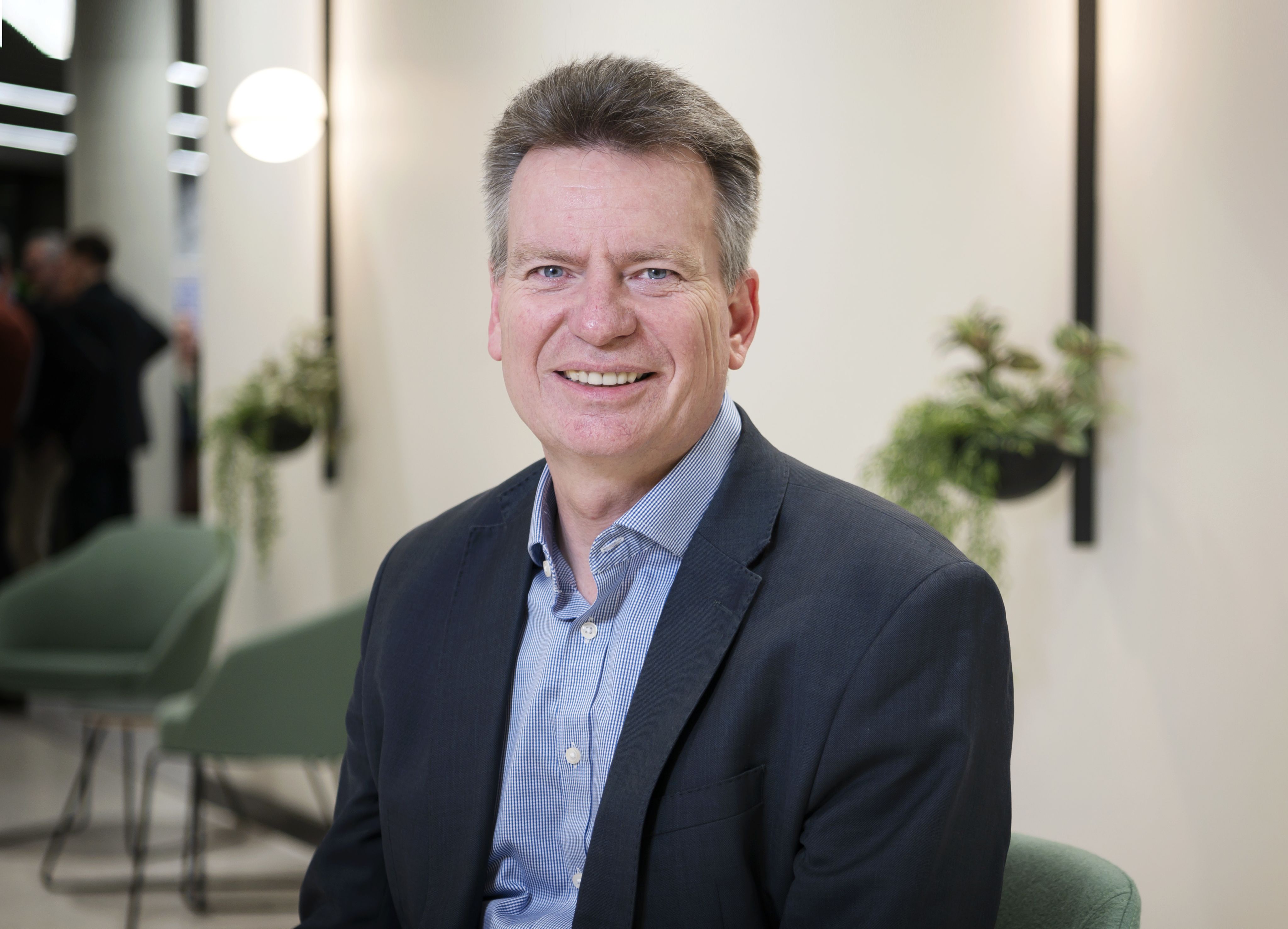
An update from Matt Allen, Director of New Hospital Construction, CUH
An update from Matt Allen, Director of New Hospital Construction, CUH
Welcome to the first newsletter of the year. We've already made exciting progress so far in 2024, and we're looking forward to another busy and momentous year for Cambridge Cancer Research Hospital (CCRH). We made significant progress in 2023; the UK Government approved our Outline Business Case, we appointed a construction partner and submitted our planning application to the local authority to build the East of England’s first specialist cancer research hospital. You can see some of our key milestones and activities of 2023 in our video below.
I am delighted to say that in January we appointed Mark Bullock as Independent Chair of our Building and Construction Board (BCB), a decision-making body that will oversee the design, construction and fit-out of Cambridge Cancer Research Hospital. Mark retired as CEO of Balfour Beatty construction in December 2023. You can read more about his appointment here.
It was also a pleasure to welcome Lord Markham, Health Minister responsible for the New Hospital Programme, to the Cambridge Biomedical Campus earlier this month, to mark progress on the build of our future hospital. Construction has now started on a new car park on an adjacent site, which will free up space on the CCRH site, currently a staff car park, ahead of pre-construction works starting this summer. You can watch a video about his visit below and read more on our website here.
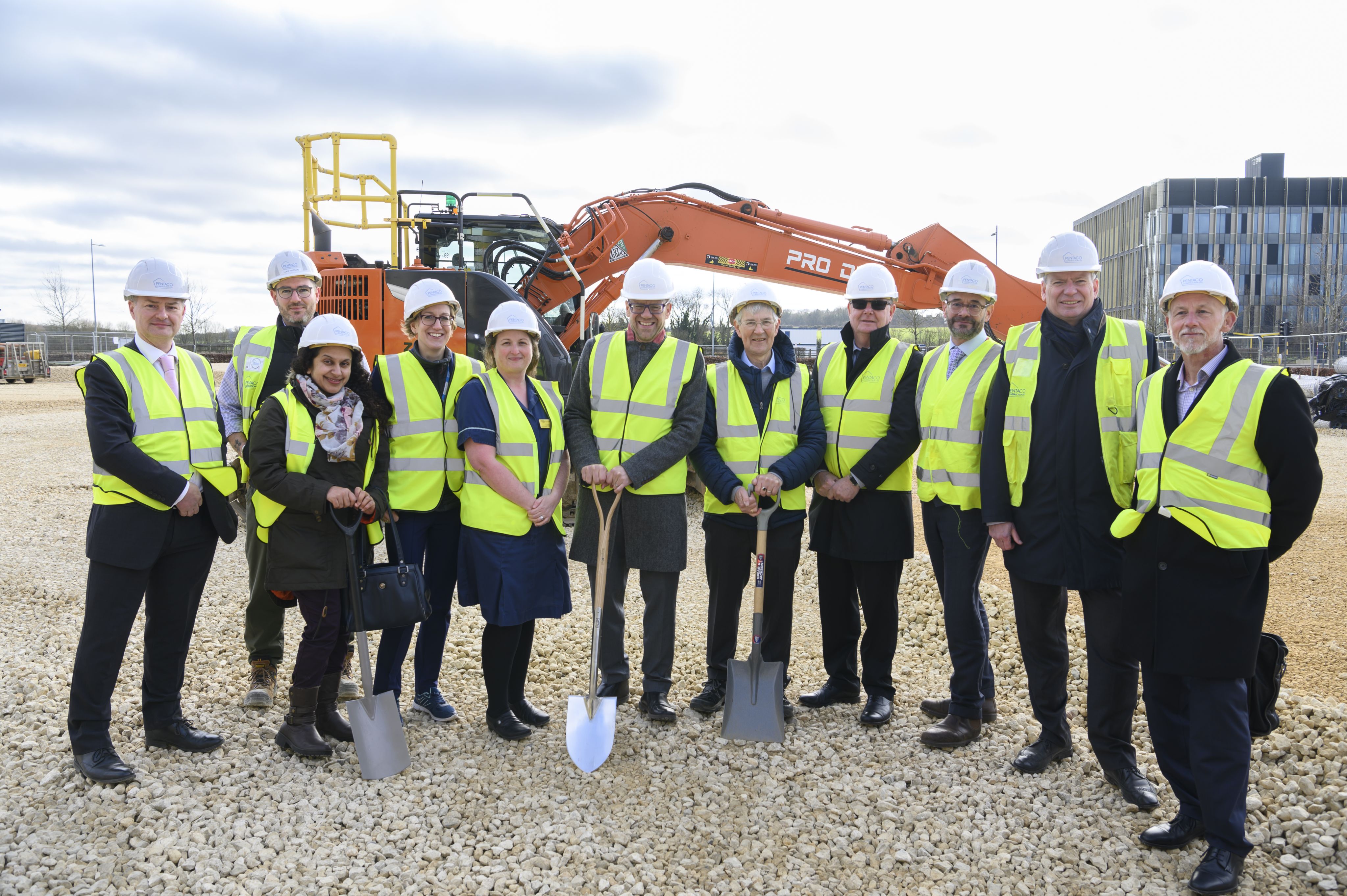
Lord Markham visiting the new East Car Park site with patients and the project team, ahead of planned enabling works for Cambridge Cancer Research Hospital
Lord Markham visiting the new East Car Park site with patients and the project team, ahead of planned enabling works for Cambridge Cancer Research Hospital
The programme of works on our future site next to AstraZeneca, Royal Papworth Hospital and Addenbrooke's Hospital will include installing hoardings, site clearance and excavation, undertaking various surveys, checking water and electricity supplies and an archaeological dig.
As these important and exciting construction works begin to take shape, we are preparing the final stage of our business case, the Full Business Case (FBC) to submit to the UK Government for approval. The FBC finalises our plans as we shift from ‘what’ to ‘how’, ahead of the build. We remain on track to start full construction works next year, in 2025.
We are hugely grateful to all of our supporters, including the staff and patients who have been involved in our consultation and design work for the build so far. The Cambridge Cancer Research Hospital programme has a busy and exciting year ahead, which we look forward to you being a part of, as we move ever closer to changing the story of cancer.
As pictured Left-Right: Anthony Browne MP, Daniel Zeichner MP, Lord Markham, Claire Stoneham (CUH Director of Strategy and Major Projects), Lucy Frazer MP, and David Cardwell (Pro-Vice Chancellor for Strategy and Planning, University of Cambridge).
Watch our 2023 highlights video
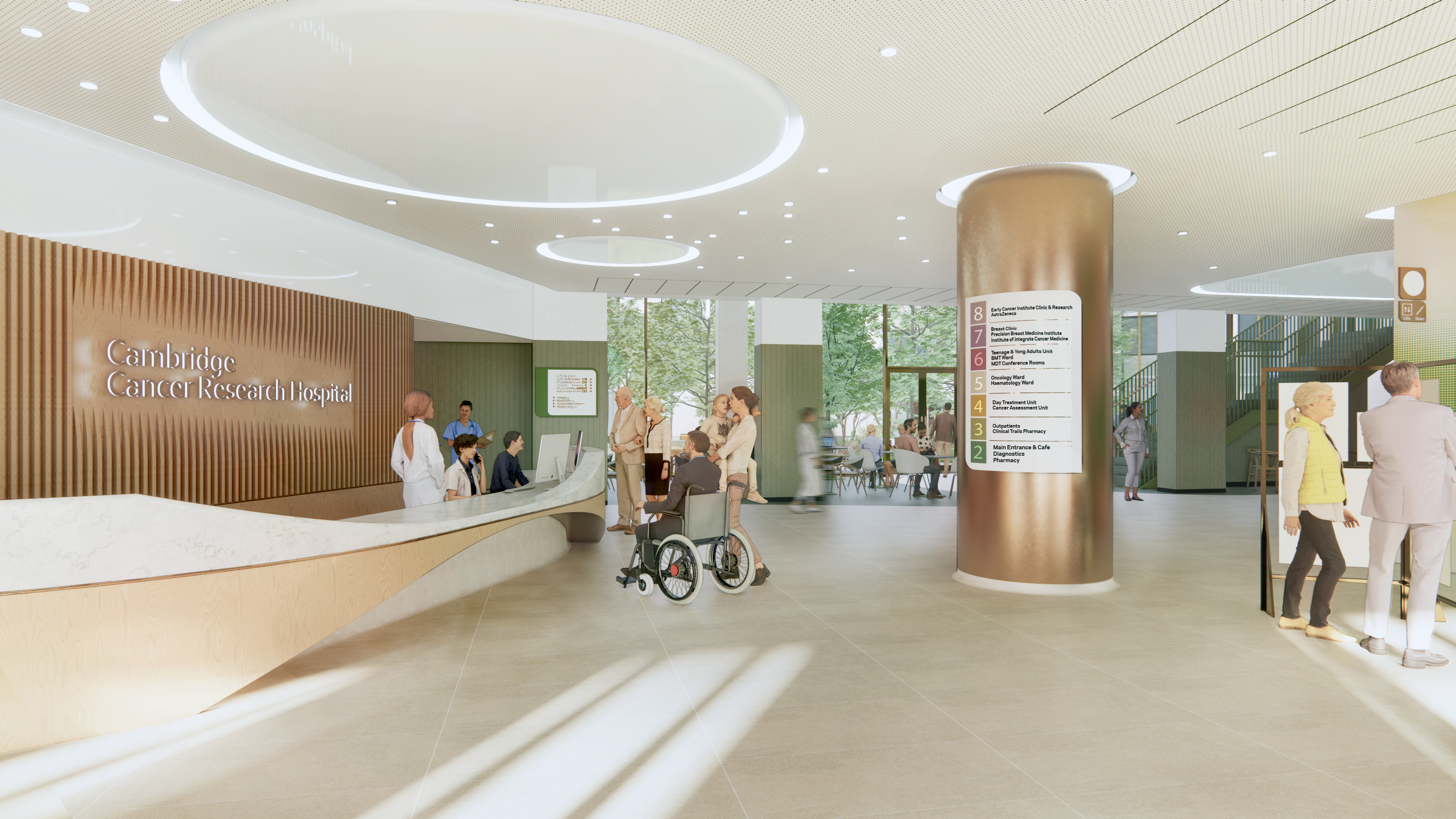
Indicative image of Cambridge Cancer Research Hospital's reception area
Indicative image of Cambridge Cancer Research Hospital's reception area
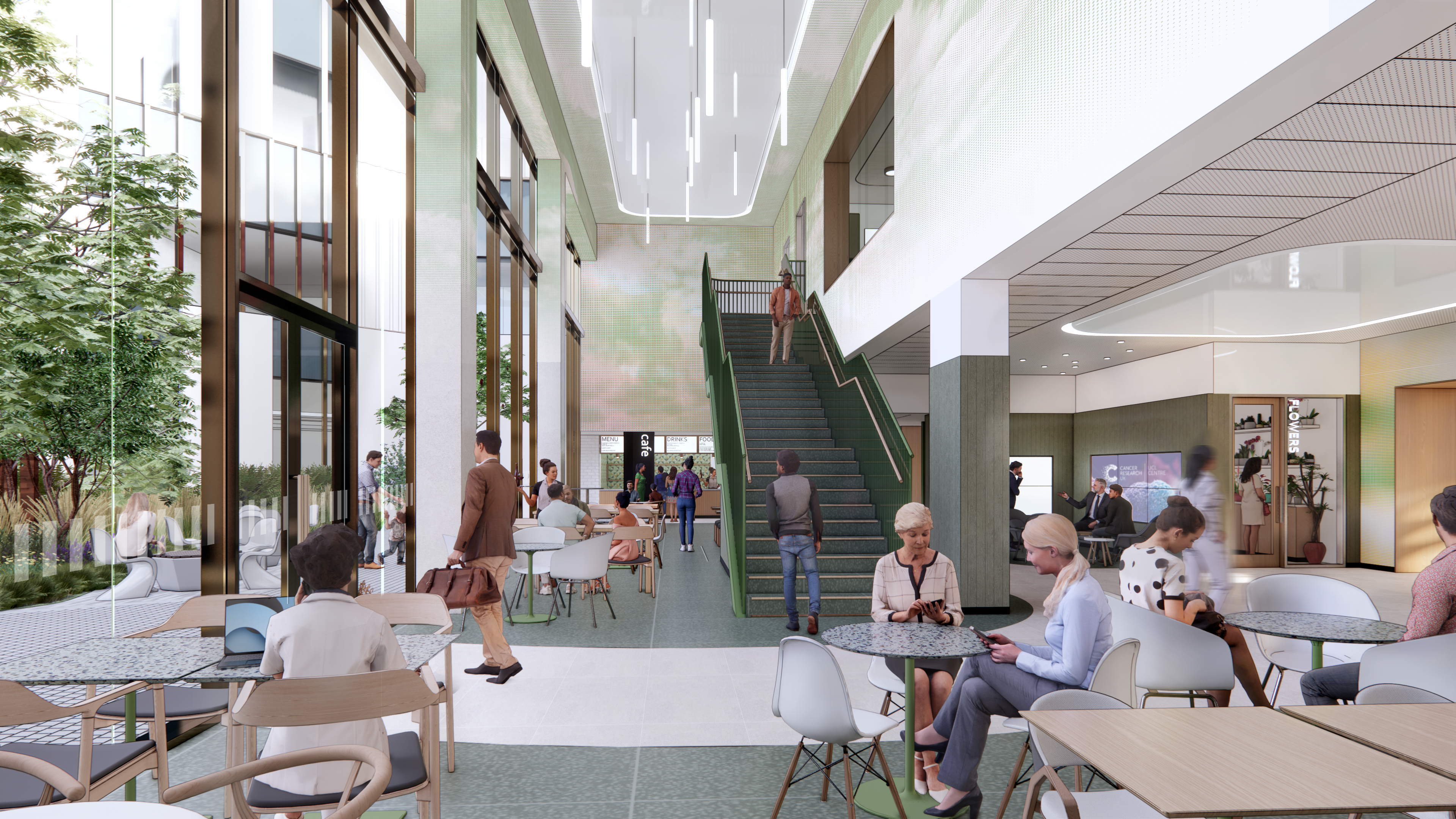
Indicative image of Cambridge Cancer Research Hospital's atrium
Indicative image of Cambridge Cancer Research Hospital's atrium
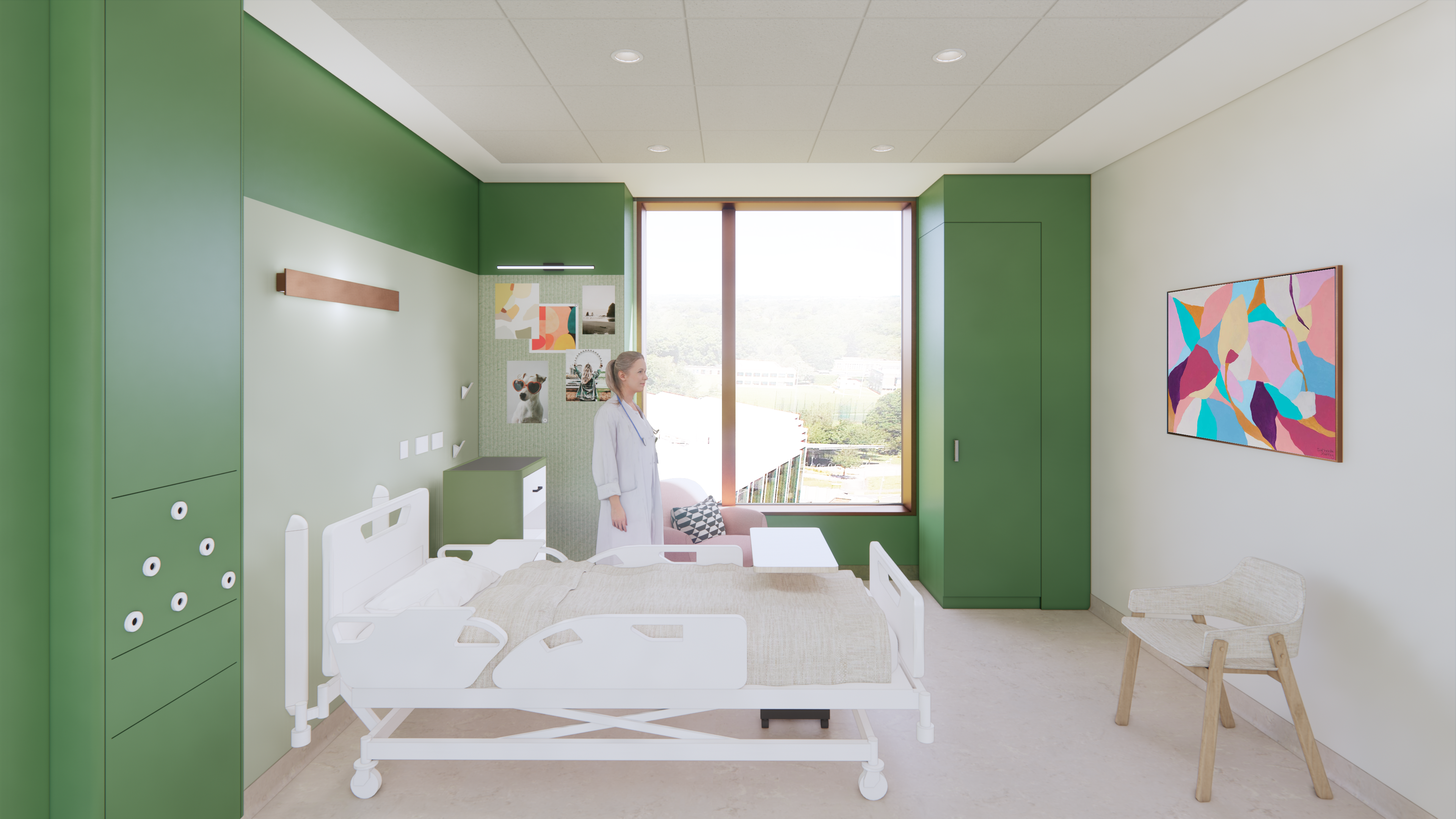
What an inpatient bedroom may look like at Cambridge Cancer Research Hospital
What an inpatient bedroom may look like at Cambridge Cancer Research Hospital
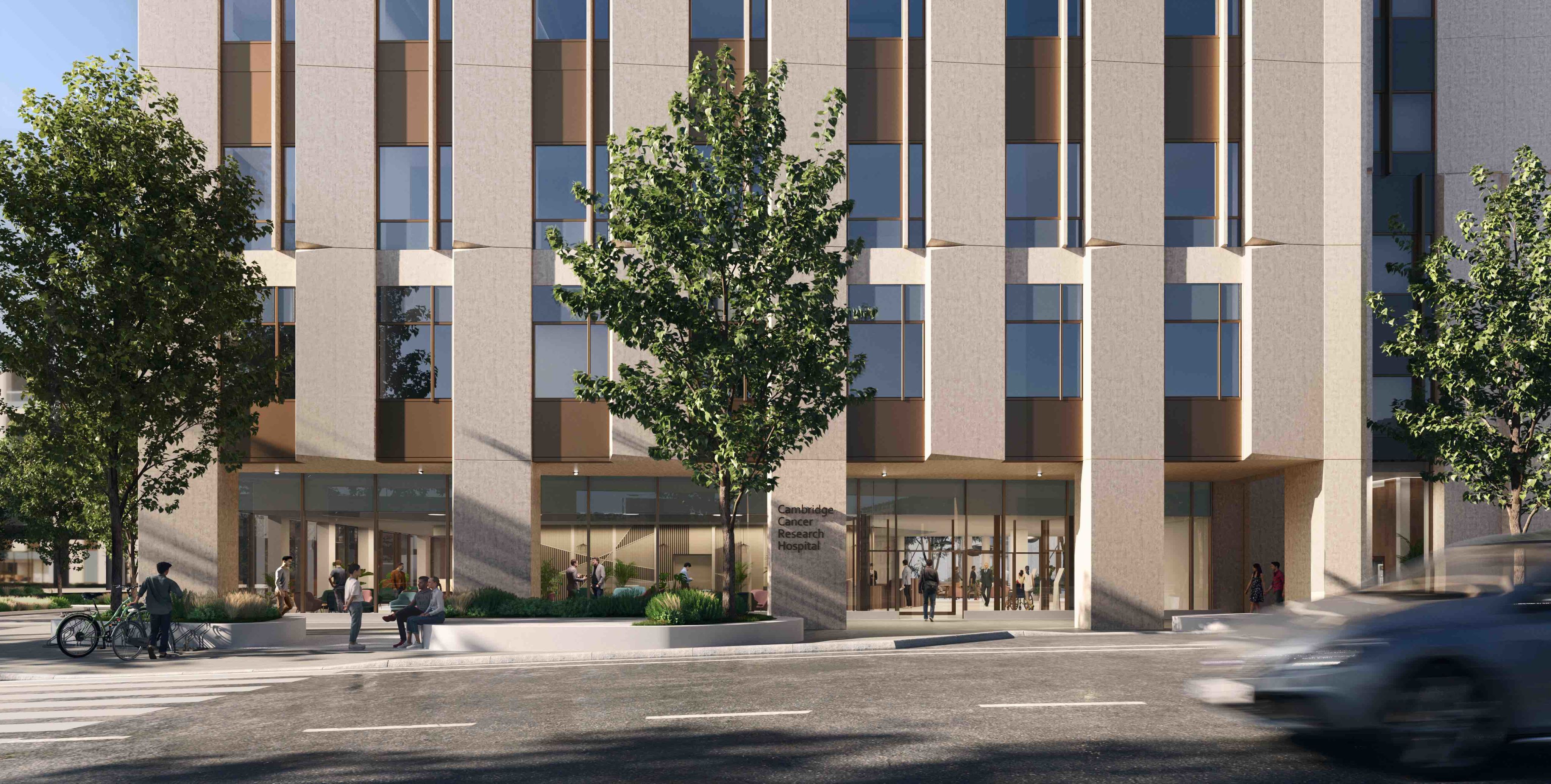
Indicative image of Cambridge Cancer Research Hospital's front entrance
Indicative image of Cambridge Cancer Research Hospital's front entrance
Bringing research to life
Our patients play an important role in the decision-making and helping to shape the design of Cambridge Cancer Research Hospital. We're integrating an NHS hospital and clinical expertise with world-leading research from the University of Cambridge and the Cancer Research UK Cambridge Centre, all under one roof.
Recently Fiona Carey and Neil Stutchbury, the Co-Chairs of our Patient Advisory Group, were invited to have a tour of the Cancer Research UK Cambridge Institute, to see how research is already shaping cancer care. The engagement tour was led by Catarina Pelicano (a PhD student in the CRUK Cambridge Centre Pancreatic Cancer Programme), who shared her research into pancreatic cancer and gave our patients a behind-the-scenes tour of a research laboratory – from cold rooms to bacterial incubators, and DNA sequencers to tissue culture facilities.
"The whole experience made the process of research come to life."
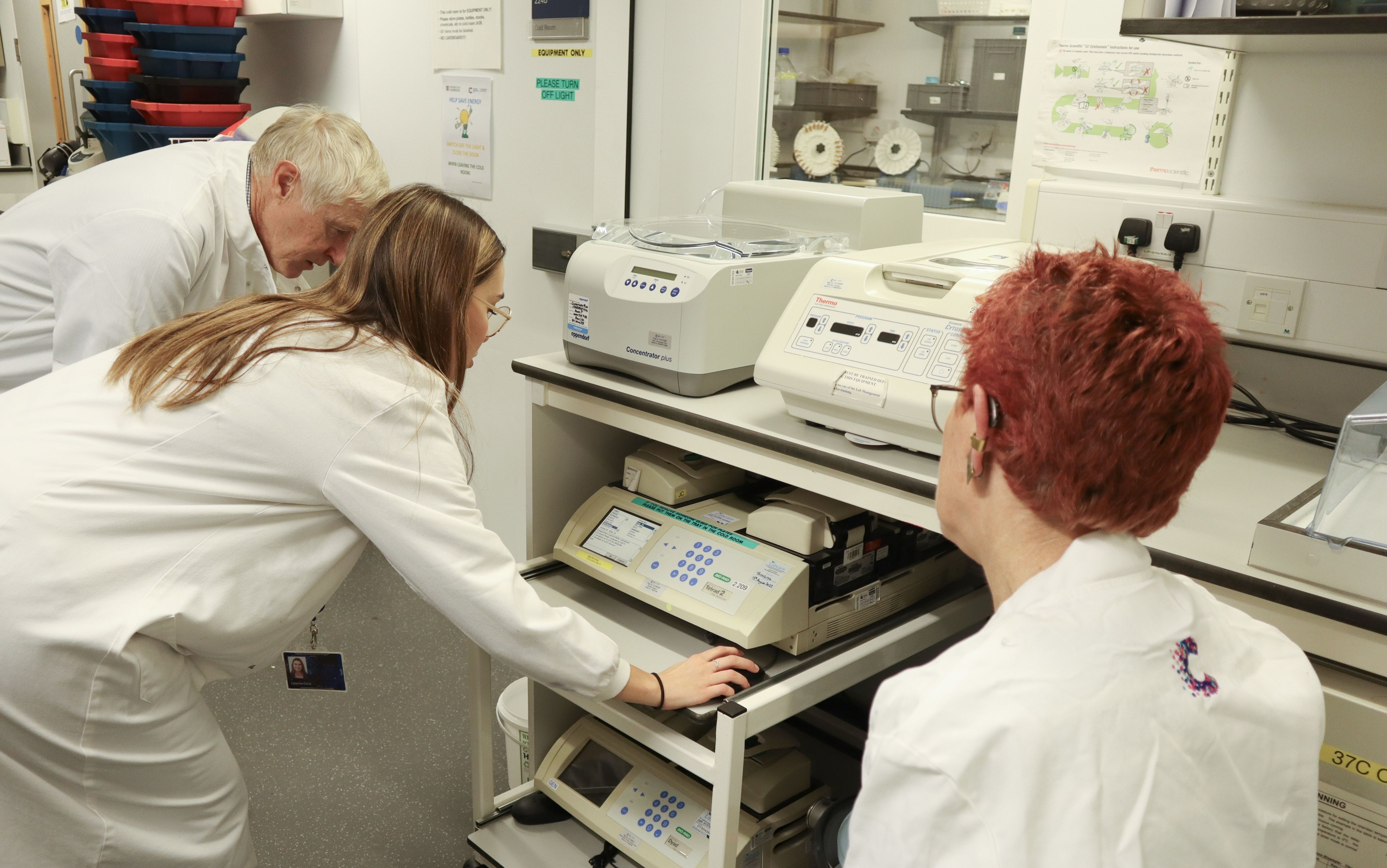
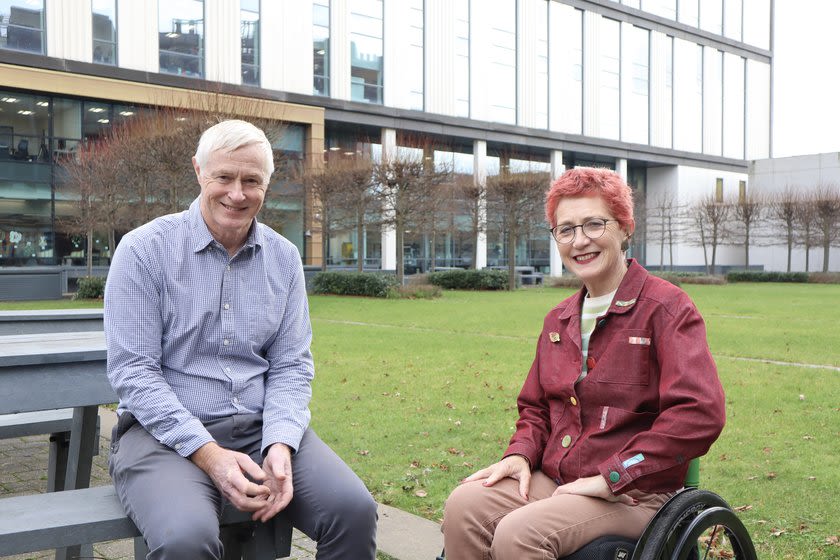
Our Patient Advisory Group (PAG) Co-Chairs, Neil Stutchbury and Fiona Carey
Our Patient Advisory Group (PAG) Co-Chairs, Neil Stutchbury and Fiona Carey
Watch the CRUK research tour
Fiona and Neil put on their own labcoats and undertook some science themselves by analysing DNA and performing some microscopy. Being in a research centre for the first time, they were impressed with what it takes to bring treatment from the bench to the bedside.
"I've had cancer for 22 years, but I've never really had any involvement in research. It was really lovely to see the labs and how the science is done. I think it's also important for researchers to have contact with patients, we have ideas, opinions and views on what ought to happen."
Mohammed's story
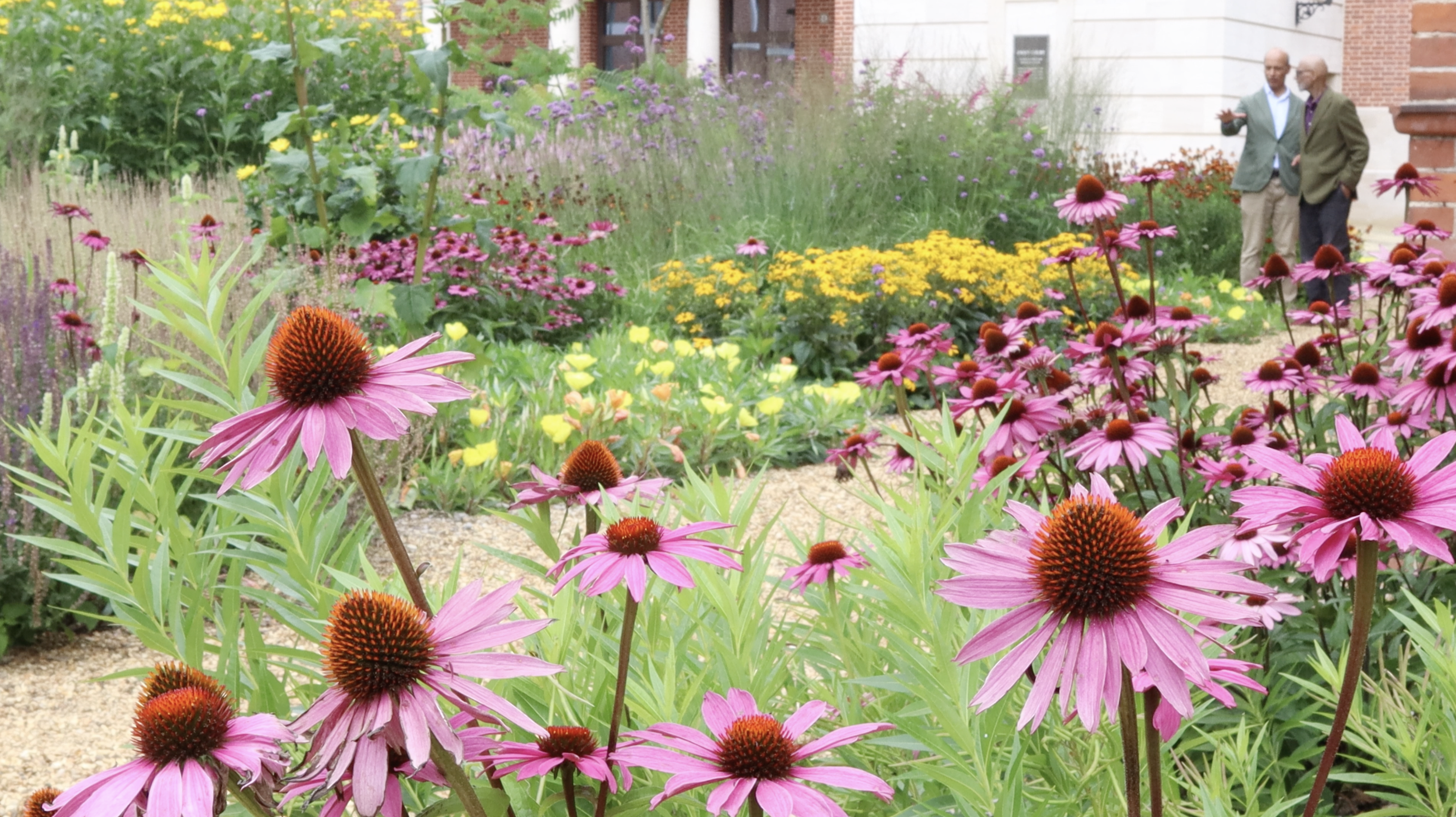
"Find things that bring you pleasure and happiness and spend time doing that – whatever your passion is, do it. Every day is valuable and you need to fill it with fantastic, happy things. Tomorrow is another day. Day by day you need to enjoy it, don’t look too far ahead. Live for today. Tackle cancer in day-by-day pleasures.”
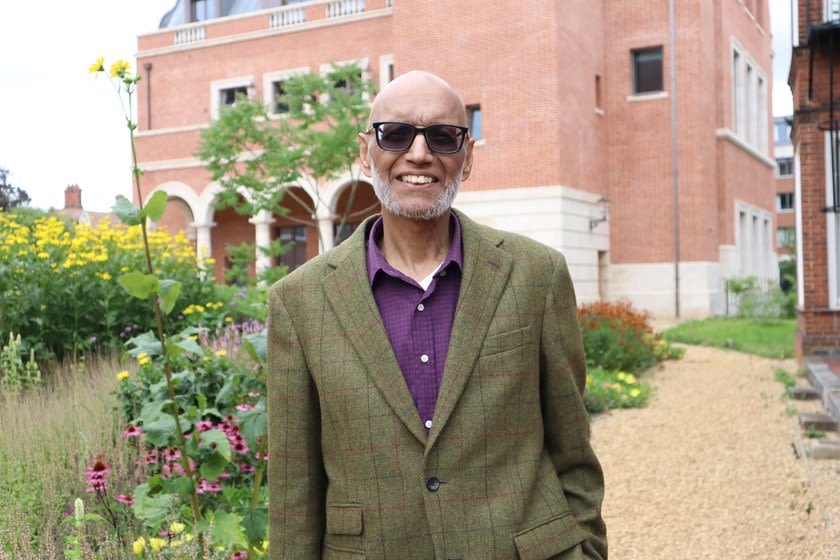
Mohammed at Selwyn College, Cambridge
Mohammed at Selwyn College, Cambridge
"It opened up a whole new world for me. The walks gave me a reason to get out of bed each day."
Mohammed Ahsan, who was diagnosed with stage 4 pancreatic cancer in 2022, has found the healing power of nature, the outdoors and flowers, have helped him overcome his ‘patient mentality’.
After being referred for tests in November 2022, Mohammed was shocked to be told he had stage 4 pancreatic cancer. Following the diagnosis and initial rounds of chemotherapy, Mohammed found he was in a lot of pain, experiencing confusion, lack of focus and was spending most of the day in bed at his home in Bottisham, Cambridge. The consultant couldn’t say how long he had to live, but estimated maybe six months.
But one day, in what he describes as a ‘Eureka moment’, Mohammed decided he must find a way out of his ‘patient mentality’ and start doing things for himself.
Mohammed started getting out of bed, getting dressed and would take short walks each day to build up strength in his legs.
He wanted to see beautiful flowers, so started daily walks with his brother, which the pair are still doing today. They often visit the Colleges of the University of Cambridge and their private gardens, which gives Mohammed time and space to talk about how he is feeling, as well as recalling happy memories with his brother. He says walking into college gardens makes “his whole heart and chest open up” because of the beautiful world in front of him.
He said: “It opened up a whole new world for me. The walks gave me a reason to get out of bed each day.”
Learning from the U Block move
Ingrid Baumann, from the CCRH Programme Team, shares her account of a recent visit to the new 'U block' building, which opened on 31 January. It will be located next to Cambridge Cancer Research Hospital and connected via an underground tunnel.
"I visited the U block and had the pleasure of touring around U3, the new home to our haematology patients. The ward has six bays with four beds each, and six single rooms. Each bay and the single rooms are all fitted out with en-suites. Similar to CCRH, there are quite a few more staff bases throughout the ward than in our current wards at Addenbrooke's Hospital.
"Looking around gave me an opportunity to think about some of the design decisions – for instance room layout, choices for doors and privacy provision (e.g. curtains, window glazing), and even little details like the quantity of clocks.
"Similarly to CCRH, it will be important to think through the 'move process' and what is required for the staff involved. Some staff who were moving over had an opportunity to tour around with us, but not all staff could be released. The staff, especially those not able to visit beforehand, will need orientation to the new space and they will need to think through any potential changes to care, with the increase in single rooms and nursing stations. The tunnel to CCRH will share its start with the U block, so it also gives us an opportunity to think through transfers to/from the main hospital."
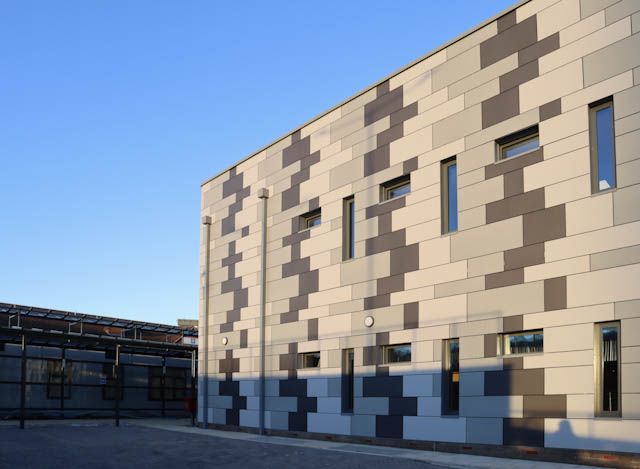
Opening of the new U Block next to the planned Cambridge Cancer Research Hospital
Opening of the new U Block next to the planned Cambridge Cancer Research Hospital
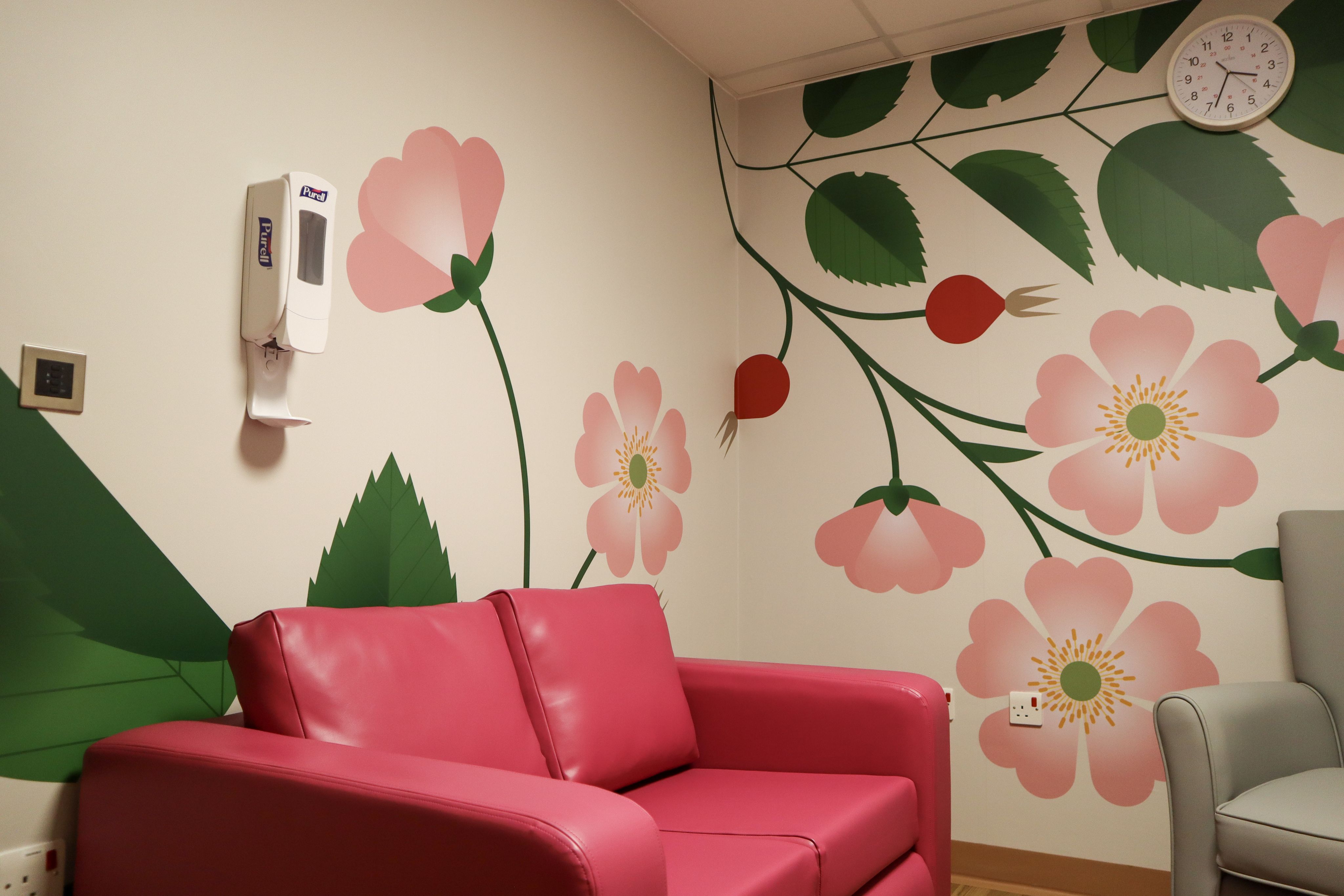
Regional engagement with patients and members of the public
The new Cambridge Cancer Research Hospital, as a part of Cambridge University Hospitals (CUH), will continue to serve the local Cambridgeshire population as a district general hospital. It will also form the Regional Cancer Centre for the East of England, providing access to specialist cancer care that is not available to patients from the region at their local hospital, such as bone marrow transplants or CAR-T cell therapy.
As part of our developing plans for CCRH, we are currently delivering a programme of engagement activities with patients and members of the public in Cambridge, Peterborough and Huntingdon. We aim to raise awareness of the new hospital and our plans, but also to increase our understanding of different experiences of cancer care and wider healthcare, as well as how CCRH will positively impact the county and wider region when it is built.
We have been proactively building relationships with individuals, organisations and support groups and have had the opportunity to attend sessions in-person and online in recent months to hear lived experience from patients. We take all feedback and thoughts back to our project team to ensure they are considered when thinking about the new design, services, and facilities in CCRH.
This January we attended a Hunts Community Cancer Network support session, where we had the opportunity to speak with patients about their experience of cancer care in Peterborough, Hinchingbrooke and Addenbrooke’s. We also presented to the Oasis Ely Cancer Hub, to update them on our plans and design, and at the end of the month we visited the North West Anglia Foundation Trust Cancer Patient Partnership Group at Hinchingbrooke Hospital.
If you are a member of a group or organisation and would like to find out more about CCRH, please do get in touch cuh.ccrh@nhs.net
CCRH appoints arts advisor for project
Cambridge Cancer Research Hospital has appointed Fabienne Nicholas as a consultant arts advisor, to develop the arts strategy for the future hospital.
Fabienne has over 30 years of senior leadership, curatorial and producing experience in the arts, with a history of developing sustainable and inclusive arts programmes and delivering extraordinary public art projects.
Now a freelance curator and Senior Associate Curator at Futurecity, Fabienne is delivering globally significant public art programmes and strategies. From delivering the first statue of a woman in Parliament Square to developing long-term public art programmes for LSE, Cambridge and Bristol Universities, she has a passion for bringing great art to great places.
Natalie Ellis, Head of Arts at Cambridge University Hospitals said: “As an integral part of plans for CCRH, the arts can lift the environment from acceptable to exceptional, helping to redefine what a cancer hospital can be. Through the arts strategy, our aim is to create a welcoming, positive and inspiring environment that far surpasses expectations and plays a genuine role in patient care.
"We are looking forward to launching the CCRH art commissioning programme as part of the next design phase, focussing on two very special art commissions in the main public spaces of the hospital. We’re delighted that consultant art curator Fabienne Nicholas will be guiding us on this journey.
"Fabienne joins us with invaluable knowledge of public art commissioning, significant experience of working on the Cambridge Biomedical Campus and in healthcare settings, and an impressive range of artist contacts. I know that Fabienne is excited to work with the CCRH project team in the coming months.”
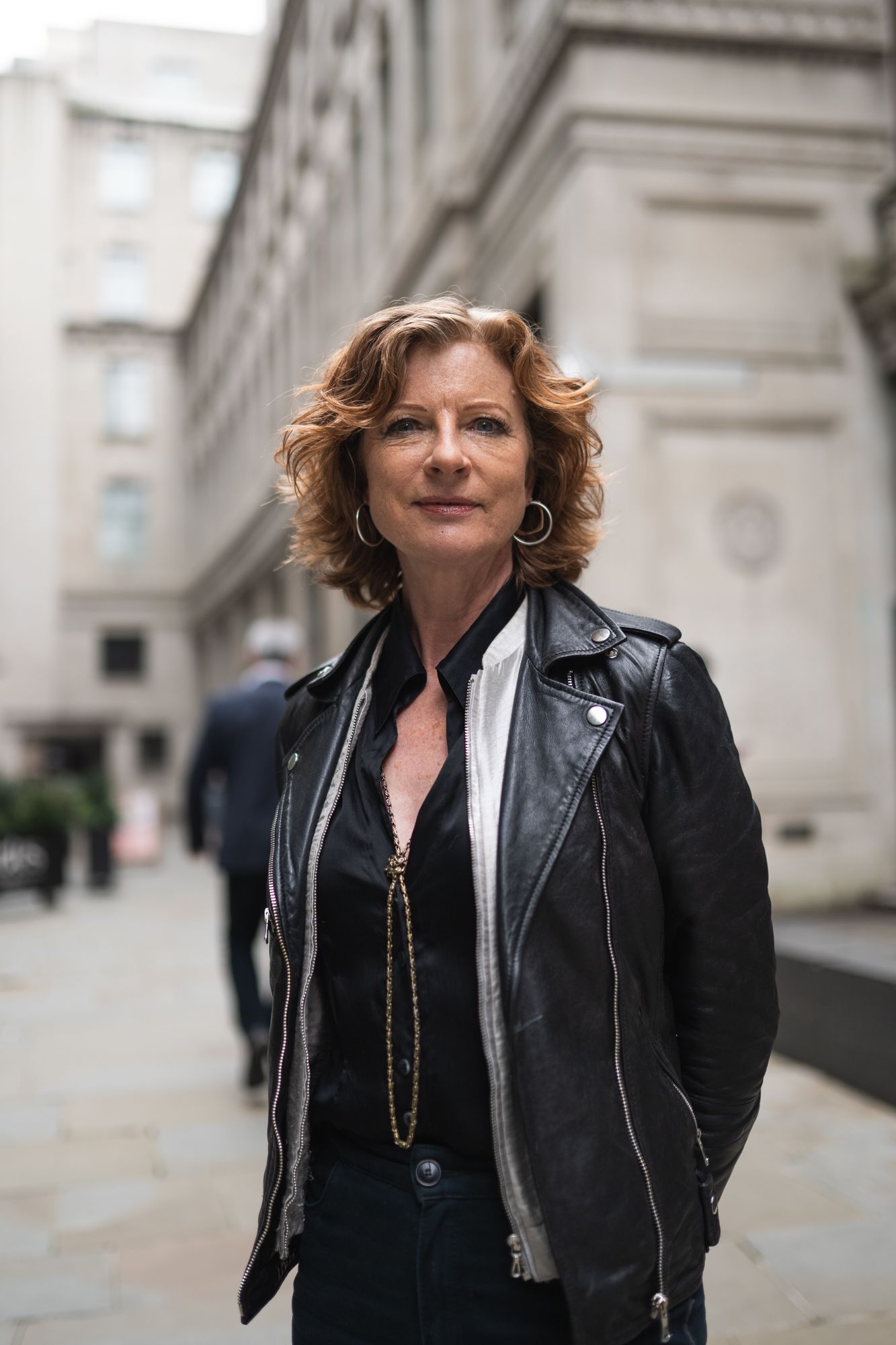
Fabienne Nicholas
Fabienne Nicholas
Events
The Cambridge Cancer Research Hospital team and CRUK Cambridge Centre will be at a number of public events in the coming months. If you're interested in finding out more or registering to attend, please click on the links below:
3rd March - Cambridge Half Marathon - we will have a stand as part of Addenbrooke's Charitable Trust's space on the day. A number of staff, patients and members of the public are raising money for CCRH and we will be there to talk about our plans for the new hospital.
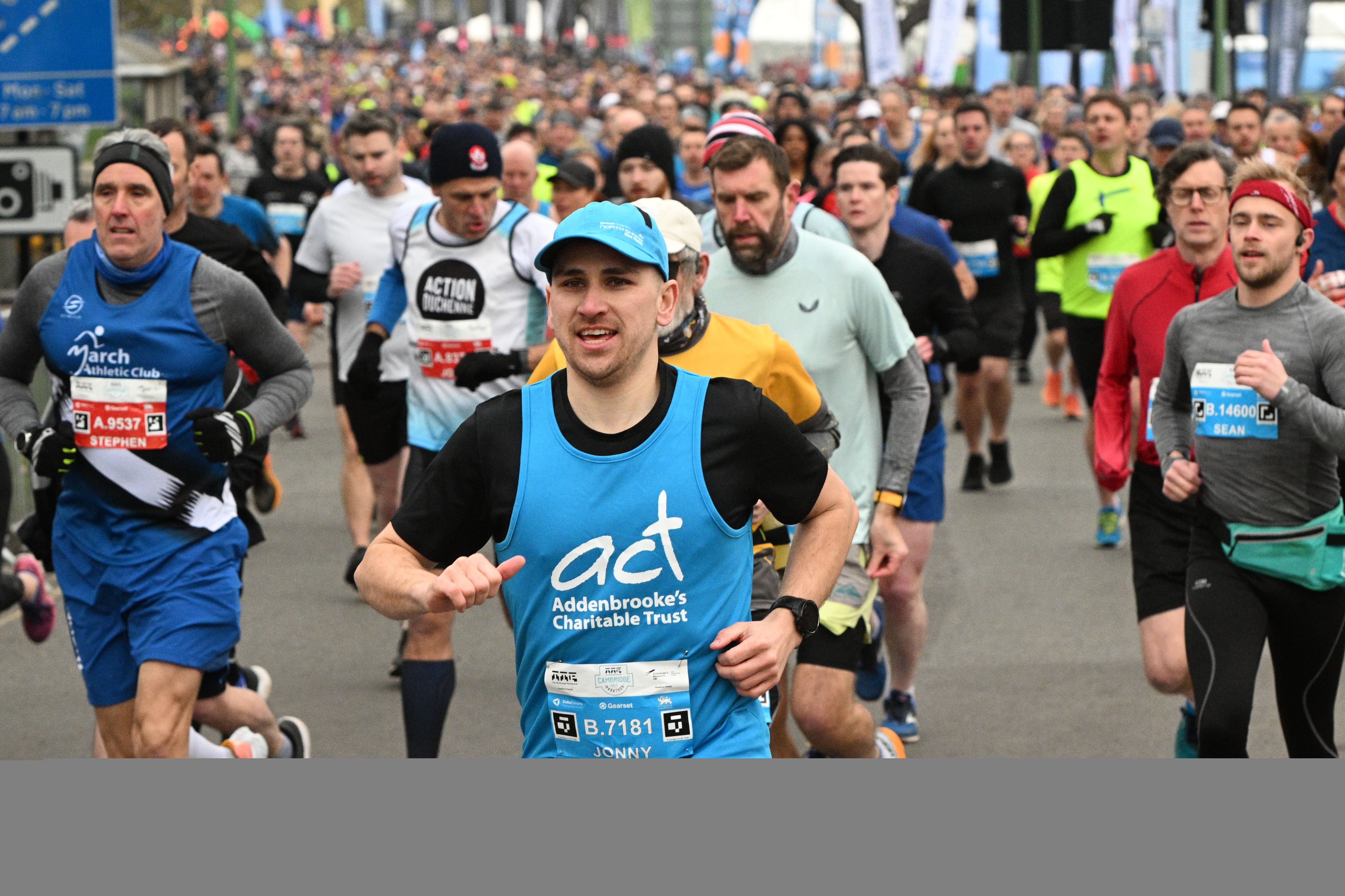
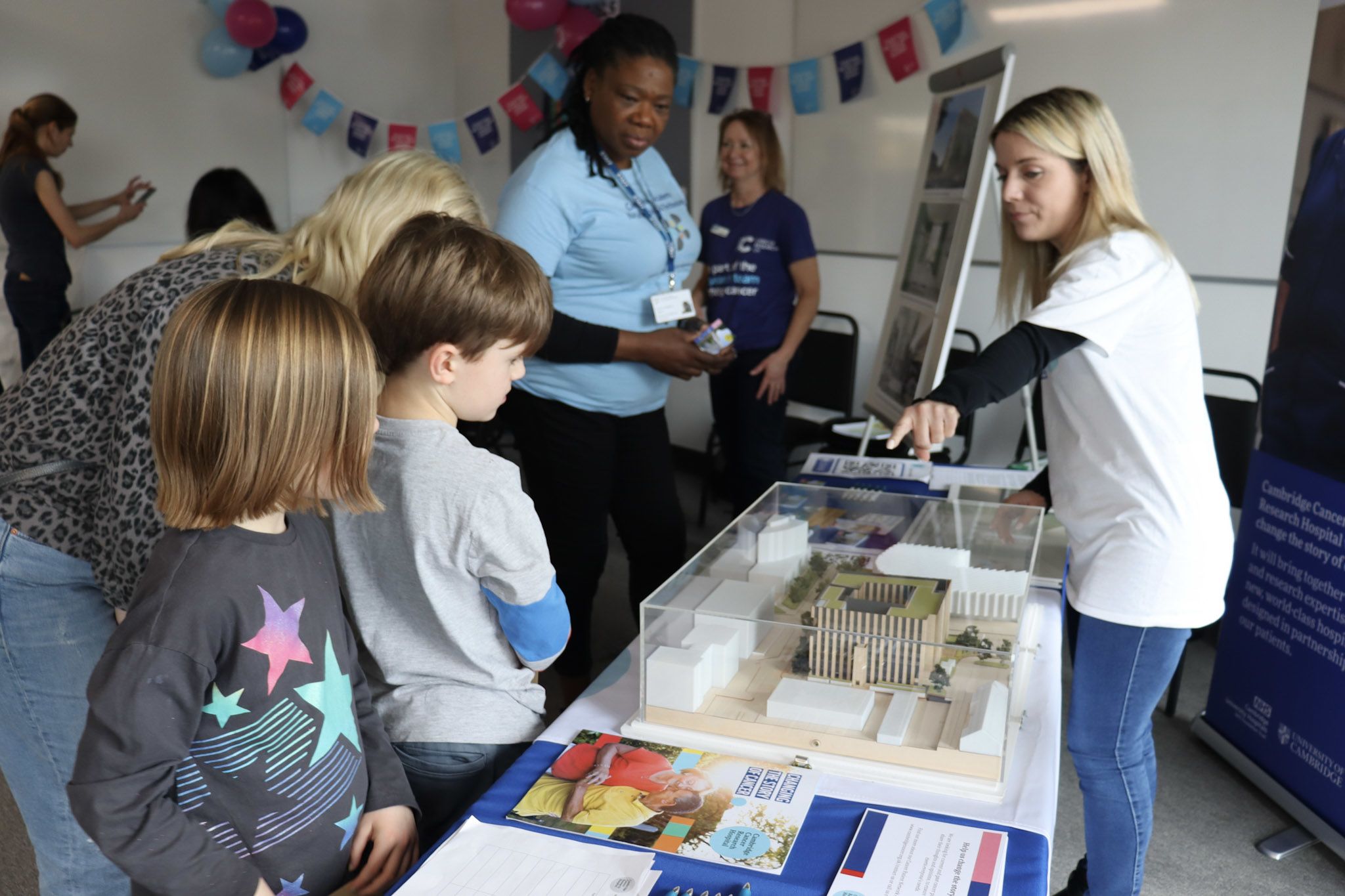
16th March - Cambridge Festival at the Cambridge Academy for Science and Technology.
22nd March - Cambridge Precision Breast Cancer Symposium 2024 at the Old Divinity School, St John's College.
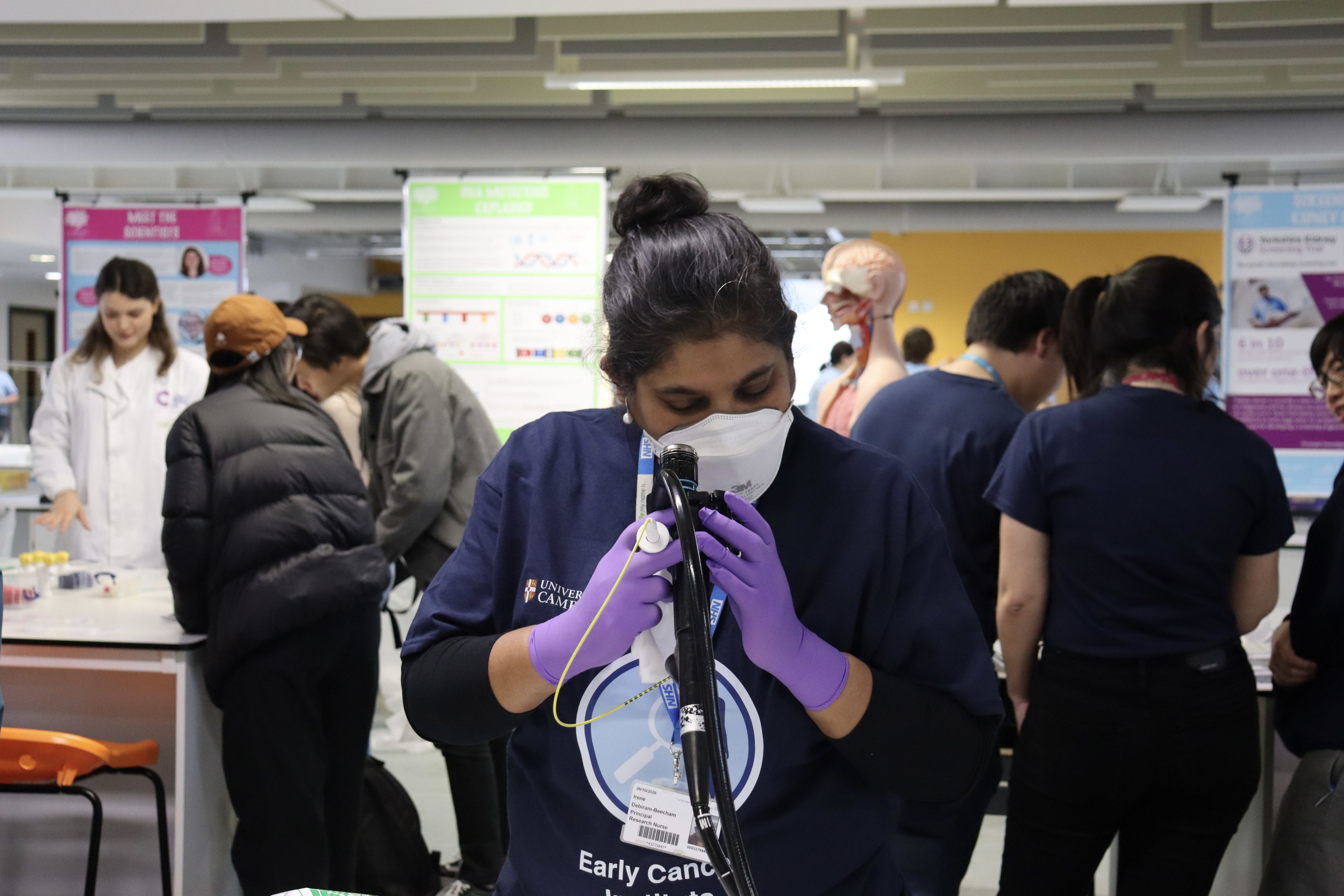
Latest cancer news from Addenbrooke's, the University of Cambridge and the CRUK Cambridge Centre
Cancer isn’t fair – but care should be
Over a million lives have been saved in the UK thanks to improvements in cancer prevention, diagnosis and treatment since the 1980s. But the promise of these advances is not felt by all.
Landmark national study supports use of whole genome sequencing in standard cancer care
In the largest study of its kind, scientists report how combining health data with whole genome sequence (WGS) data in patients with cancer can help doctors provide more tailored care for their patients.
New trial brings screening for oesophageal cancer closer
A man from Cambridge is the first to join the surveillance part of a clinical trial that could see routine screening for oesophagael cancer introduced into the NHS, potentially halving deaths from this cancer every year.
Ageing: can we add more life to our years?
Ageing is a major risk for most types of cancer. Research advances at the University of Cambridge mean that the eternal quest to reverse the march of time may soon become a reality.
Initial trial results suggest new treatment combination for some breast cancer patients
A Cambridge-led trial testing a potential new treatment combination for post-menopausal women with hormone driven breast cancer reports positive findings at the international San Antonio Breast Cancer Symposium.
Podcast: Ask me anything about...genetic testing in pancreatic cancer
Listen and learn about inherited pancreatic cancer, genetic testing and genetic counselling, hosted by Dr Hui-Ling Ou, Programme Manager for the Pancreatic Cancer Programme at CRUK, Cambridge Centre at the University of Cambridge.
Find out more and join us
Patients and their families are involved in the CCRH programme in two groups; the Patient Network and the Patient Advisory Group (PAG). For more information on joining these groups, please visit the CCRH website.
Follow us on Twitter and Facebook for news about the programme and visit our website for more information.
To unsubscribe, email hello@cambridgecancer.org.uk
